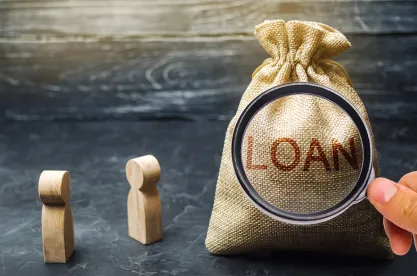Under new guidance from the Small Business Administration (SBA) issued through a Procedural Notice (Notice) on Oct. 2, 2020, certain PPP borrowers may be required to seek prior consent from the SBA for a change in ownership of equity or sale of assets. Notably, the Notice addresses a change in ownership interest of the PPP borrower itself, but does not specifically address changes in ownership at the level of the borrower’s affiliates. Absent additional guidance, presumably no SBA or lender approval would be required for a change in ownership at a borrower’s affiliate if the transaction did not have a bearing on the PPP borrower, its direct assets, or equity interests. The Notice establishes different categories of transactions, some of which may require prior approval of the SBA, and is effective for all transactions that close on or after Oct. 2, 2020.
Prior to the closing of any change of ownership transaction, a PPP borrower must notify its PPP lender in writing of the contemplated transaction and provide the PPP lender a copy of the proposed agreements or other documents that would effect the proposed transaction. The original loan documentation itself may contain covenants triggering lender consent to the transaction as well and should be reviewed accordingly, although compliance with the Notice requirements will still be required. The Notice states that, where SBA approval is required, the SBA will review and provide its decision within 60 days of receipt of a completed request. This up-to-60-day waiting period could result in a significant delay of the closing of the transaction. Accordingly, a determination of whether prior approval is required should be made early in the transaction process.
Under the Notice, a “change of ownership” will be considered to have occurred with respect to a PPP loan when:
-
at least 20% -- a relatively low threshold -- of the common stock or other ownership interest of a PPP borrower (including a publicly traded entity) is sold or otherwise transferred, whether in one or more transactions, including to an affiliate or an existing owner of the entity;
-
a PPP borrower sells or otherwise transfers at least 50% of its assets (measured by fair market value), whether in one or more transactions; or
-
a PPP borrower is merged with or into another entity.
With respect to asset sales, all sales and other transfers occurring since the date of approval of the PPP loan must be aggregated to determine whether the 50% threshold has been met. For publicly traded borrowers, only sales or other transfers that result in one person or entity holding or owning at least 20% of the common stock or other ownership interest of the borrower must be aggregated. Transactions that do not satisfy one of the categories set out above should not, absent other obligations of the borrower, constitute a change in ownership requiring pre-closing consent of the SBA.
Regardless of any change of ownership, the original PPP borrower remains responsible for (1) performance of all obligations under the PPP loan, (2) the accuracy of the certifications made in connection with the PPP loan application, including the certification of economic necessity, and (3) compliance with all other applicable PPP requirements. Additionally, the PPP borrower must obtain, prepare, and retain all required PPP forms and supporting documentation and provide those forms and supporting documentation to the PPP lender or lender servicing the PPP loan (referred to as the “PPP Lender” in this Notice) or to the SBA upon request. If the buyer or the seller (or both) has an outstanding PPP loan, and the change of ownership transaction is financed in whole or in part with an SBA Section 7(a) loan, all SBA Loan Program Requirements, as defined in 13 CFR 120.10, must be met. Further, if an escrow account is required under the Notice, the Section 7(a) loan cannot be used to finance the escrow account.
Change in ownership transactions that will not require SBA consent
Once a PPP borrower determines its proposed transaction constitutes a change in ownership under the Notice, it must then determine whether that change in ownership structure will require SBA consent. Under the terms of the Notice, SBA consent is not required in the following instances:
-
The loan is fully satisfied. There are no restrictions on a change of ownership if, prior to closing the sale or transfer, the borrower has (a) repaid the loan in full; or (b) completed the loan forgiveness process in accordance with PPP requirements. Completion of the loan forgiveness process occurs when either the SBA has remitted funds to the PPP Lender in full satisfaction of the loan, or the borrower has repaid any remaining balance on the loan.
-
The loan is not fully satisfied. If the loan is not fully satisfied prior to closing the sale or transfer, but the following conditions are met, then the PPP Lender may approve the change of ownership without prior approval from the SBA:
-
Change of ownership is structured as a sale or other transfer of common stock or other ownership interest or as a merger. An individual or entity may sell or otherwise transfer common stock or other ownership interest in a PPP borrower without the prior approval of SBA only if:
-
The sale or other transfer is of 50% or less of the common stock or other ownership interest of the borrower. Note that, in determining whether a sale or other transfer exceeds this 50% threshold, all sales and other transfers occurring since the date of approval of the PPP loan must be aggregated; or
-
The borrower completes a forgiveness application reflecting its use of all of the PPP loan proceeds and submits it, together with any required supporting documentation, to the PPP Lender, and an interest-bearing escrow account controlled by the PPP Lender is established with funds equal to the outstanding balance of the PPP loan. After the forgiveness process (including any appeal of SBA’s decision) is completed, the escrow funds must be disbursed first to repay any remaining PPP loan balance plus interest.
-
-
Change of ownership is structured as an asset sale. A borrower may sell 50% or more of its assets (measured by fair market value) without the prior approval of SBA only if the borrower completes a forgiveness application and follows the procedure outlined in clause (b) above. The PPP Lender must notify the appropriate SBA Loan Servicing Center of the location of, and the amount of funds in, the escrow account within five business days of completion of the transaction
-
If a change of ownership of a PPP borrower does not meet the conditions set out above, prior SBA approval of the change of ownership is required, and the PPP Lender may not unilaterally approve the change of ownership. It is the responsibility of the PPP Lender, not the borrower, to submit a request for approval to the appropriate SBA Loan Servicing Center, which request must include:
-
the reason that the PPP borrower cannot fully repay the loan or satisfy the applicable escrow requirements;
-
the details of the proposed transaction;
-
a copy of the executed PPP loan;
-
any letter of intent and purchase or sale agreement setting forth the responsibilities of the borrower, seller (if different from the borrower), and buyer;
-
disclosure of whether the buyer has an existing PPP loan and, if so, the SBA loan number; and
-
a list of all owners of 20% or more of the purchasing entity.
Additional risk mitigation measures may be imposed by the SBA as a condition of its approval of the transaction. Further, SBA approval of a transaction involving the sale of 50% or more of the assets (measured by fair market value) of a PPP borrower will be conditioned on the buyer assuming all of the PPP borrower’s obligations under the loan. The Notice states that in such cases, the purchase or sale agreement must include appropriate assumption language or a separate assumption agreement, which must be submitted to the SBA. The SBA will make its determination within 60 days of submission by the PPP Lender of all required information and documentation.
Regardless of whether SBA approval is required, the PPP borrower (and, in the event of a merger, the successor to the PPP borrower) will remain subject to all obligations under the PPP loan. The SBA will have recourse against the buyer’s unauthorized use of the loan proceeds. If any of the buyers or successors have a separate PPP loan, then, following consummation of the transaction PPP funds and expenses must be segregated and delineated for each borrower, with appropriate documentation available to demonstrate compliance with PPP requirements with respect to all PPP loans.
* * * * * * * *
While this latest guidance from the SBA clarifies when a change in the borrower’s ownership or assets requires prior approval, the additional burden on small businesses to comply with both PPP Lender and SBA approval or consent requirements can be onerous and cause significant delays in the ability of a borrower to consummate a transaction. If circumstances allow and the borrower has the ability to satisfy the loan in full or otherwise comply with the escrow requirements, in each case prior to closing, then the SBA’s documentation and approval process as set out in the Notice can be avoided. This may, however, force certain borrowers to seek bridge or buyer financing, if available, to repay the loan upfront in order to consummate the transaction on a timely basis without additional regulatory scrutiny or delay.
The foregoing analysis and summary reflects guidance issued by the SBA through Oct. 9, 2020. Additional guidance may be issued that materially alters the information set out in this GT Alert.






 />i
/>i

